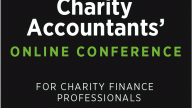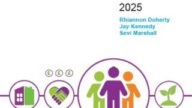Charity reporting requirements are changing – are you ready?
The ‘SORP-making body’, comprised of the charity regulators, has been consulting on a new version of the SORP. The consultation closes on Friday, 20 June, and you can find DSC’s full response in this new article by Jay Kennedy, DSC's Director of Policy and Research.
From January 2026, charity annual reports and accounts are going to change substantially. Are you and your trustees ready?
The Statement of Recommended Practice, or SORP, translates internationally agreed accounting standards into rules and guidance that informs the preparation of charity accounts and trustee reports. The SORP is vitally important for charity transparency and effective regulation, but it has not been refreshed in some years.
The ‘SORP-making body’, comprised of the charity regulators, has been consulting on a new version of the SORP. The consultation closes on Friday 20 June, and you can find DSC’s full response here. (Please right-click and press ‘open in new tab’)
The new version of the SORP will bring in substantial changes. For the first time, it includes a tiered system with different requirements for charities of varying financial sizes. It also includes new aspects for trustees to report on, including volunteering, impact and sustainability. The Charity Finance Group have done a really helpful podcast on the changes, including DSC’s Chief Executive Debra Allcock Tyler.
The SORP applies to all Charitable Incorporated Organisations (CIOs), all charities using accruals accounting and all charities that are also registered companies. The smallest charities would still able to use simpler receipts and payments accounting and would be exempt from the new requirements, unless they are registered companies or required to produce accruals accounts by their governing document.
The result is expected to be concluded in ‘Autumn’, with the changes in effect from January 2026. Although there was ample time given for the consultation, the implementation period doesn’t provide much advance notice for charity trustees, finance teams and accountants – charity leaders and trustees need to make themselves aware of what’s coming!
DSC has responded to the consultation, you can find DSC’s full response here. (Please right-click and press ‘open in new tab’) Please feel free to share this with your contacts and networks. Our recommendations to the SORP-making body are that they should:
- Move forward the implementation date for the enhanced reporting requirements on sustainability and impact to commence from January 2027, because of the short time frame.
- In the absence of a delay, regulators should allow an additional grace period of e.g. two months for filing of 2024/25 reports and accounts before they are labelled ‘late’ in red in public registers of charities.
- Place impact reporting clearly in the context of the public benefit requirement. Any impact reporting should flow from and be in the context of charity law and charitable status, and be clearly linked to the charity’s public benefit rather than requiring additional (and expensive) methodologies that aren’t related to charity governance.
- Scrap the sustainability reporting requirement for all but the largest charities, and align the Tier 3 threshold with ESG reporting requirements for UK businesses.
- Rethink the income range between the start of Tier 1 and Tier 2, and potentially the starting point for Tier 2. An income range of £500,000 to £15m for the Tier 2 requirements encompasses far too much difference in the complexity and risk levels of charities within it. Align the tiers with other proposed changes to thresholds in charity law recently under consultation.
- Introduce a streamlined, plain English version of the SORP for the smallest charities which are largely volunteer-run and led and have few or no paid staff.
We’ll update you as soon as we hear more about the finalised SORP, and you can also learn about what the latest changes mean and how you make sure your charity can implement them at our Charity Accountants’ Conference in November.



